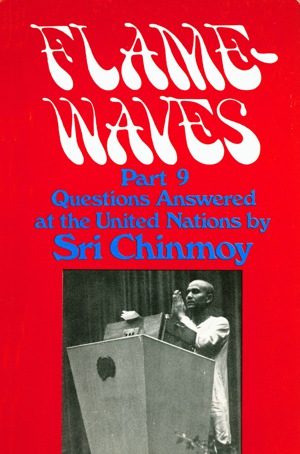Table of Contents
Part I: Questions and answers on religion
- Question: Why is there religion and what role should it play in our lives?
- Question: What is the goal of religion?
- Question: What is the original significance of religion?
- Question: The family has always been seen as the centre of both the religious and the social formation of most religions. Can you explain the sacred and divine purpose that the family is supposed to have?
- Question: Can religion help mankind to achieve a world of true brotherhood and love?
- Question: How can religion overcome a narrow outlook and develop a real acceptance of all other religions as true and necessary?
- Question: What does God like best about religions?
- Question: What is the difference between religion and spirituality?
- Question: Why should one give his time to God in the first place?
- Question: When the follower of one religion meditates on the ideals of his religion, will this produce the same results as when the follower of another religion meditates on the ideals of that religion?
- Question: What are the major obstacles to praying meaningfully?
- Question: Why don't religions love and respect each other more?
- Question: If each religion claims to teach the truth, which religion is the most true?
- Question: If one has great faith in one's own religion, how should he view other religions and those who follow other religions?
- Question: Is a mutual understanding and respect possible between the different religions of the world?
- Question: Can one be extremely devoted to a religious figure such as Jesus or Buddha and to a living spiritual teacher as well, or is it better just to follow one teacher?
- Question: How can we as individuals encourage a world-wide recognition of the basic unity of all major religions?
Part II
- Question: What is the difference between Yoga, Zen and Hinduism?
- Question: Does this mean that Zen and Yoga have different goals?
- Question: Is there no sense of strong discipline in Yoga?
Part III
- Question: How can we stay in the heart when we are doing tasks which involve the mind?
- Question: What are the major qualities of the United Nations soul?
- Question: What do the delegates and ambassadors who are participating in the General Assembly offer to the United Nations spiritually?
- Question: What should our attitude be towards working at the United Nations?
Part IV
Part V
Part VI
- A supreme honour
- Question: What is the seeker's responsibility at the United Nations?
- Question: Some nations accept the United Nations as their own. Other nations would even deny the United Nations. What are the differences in the soul-growth of the nations that have not yet become one with the United Nations?
- Question: Can you describe the stage of evolution of the United Nations soul?
- Question: What does the outer world need in order to accept the real significance of the United Nations?
- Question: There seems to be a movement towards a mental realisation where countries are starting to work with parapsychology and mind control. Is this a step towards the heart or away from the heart?
- Question: How can we help people in the undeveloped countries?
- Question: How do we best deal with people who are actively opposed to the United Nations?
- Question: How can we work with dynamism and confidence at the United Nations?
- Question: What is the best way to serve the United Nations: through meditation or action?
- Question: How can both staff members and delegates of member nations understand that spirituality is a true base to build their goals upon?
- Question: Is it best to try to bring new seekers to our United Nations meditations, or just let them discover it on their own?
- Question: How has the consciousness of the United Nations affected America as a country?
- Question: How can one best serve the ideal of the United Nations when not working at the United Nations?
- Question: How can we instil a spiritual feeling in the work that we do, so that it will be conveyed to the people we work for?
- Question: Is the United Nations destined to obtain spiritual power as well as political power?
- Question: Are the people who work at the United Nations especially chosen to work at the United Nations by some higher force?
- Question: How can we consecrate our lives to the soul of the United Nations?
- Question: How can we best inspire the people we work with?
- Question: How can we meditate on the soul of the United Nations?
- Question: How can the strong and developed countries offer their guidance to the less developed countries without incurring resentment?
- Question: What is the main problem or quality in the countries of the world which keeps them from acting according to the ideals of the United Nations?
- Question: How can I work with true spontaneity and sincerity at the United Nations?
- Question: What is the best way to bring a divine consciousness to everyday activities at the United Nations?
- Question: How can the delegates and representatives at the United Nations best convey the ideal of the United Nations to their people in their countries?
- Editor's preface to the first edition
- Sri Chinmoy Meditation at the United Nations

